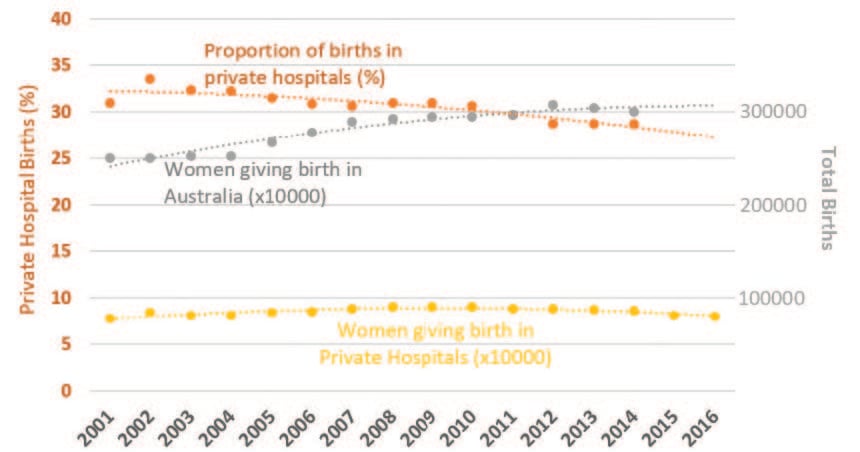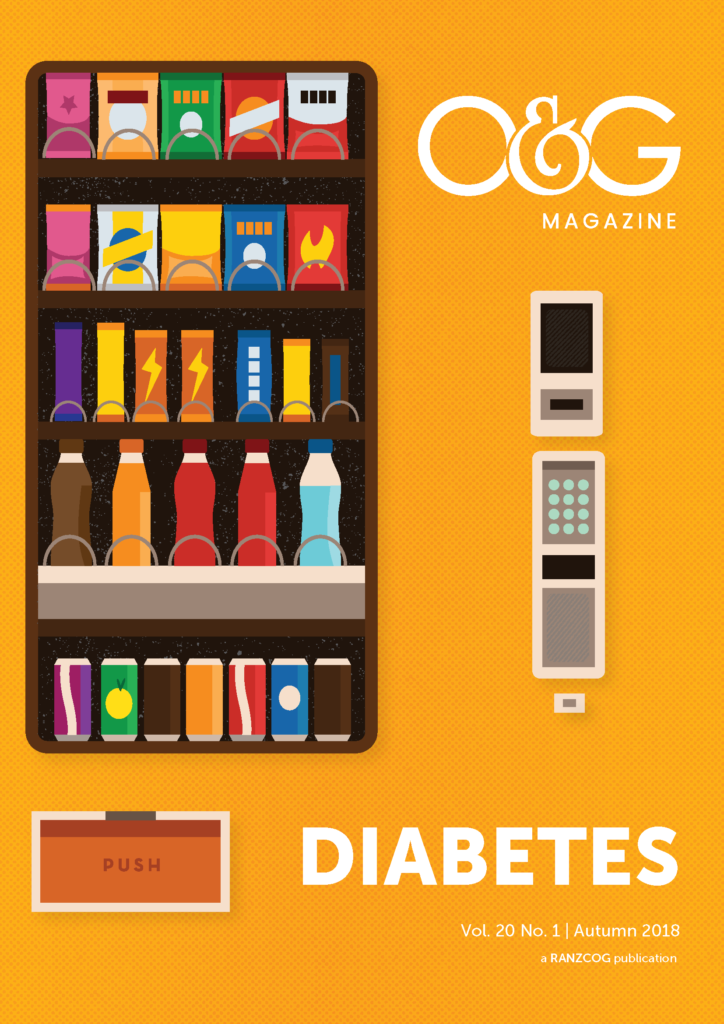This issue of O&G Magazine deals with one of the most critical public health issues of the day – diabetes. The prevalence of diabetes in our communities continues to increase and the health costs of this non-communicable disease (NCD) seem almost incalculable to me. As always, the team behind O&G Magazine have drawn together a stellar group of authors to examine the important aspects of diabetes and its impact on women, in particular, and society in general.
One of the debates with which I have some involvement has been a campaign for a ‘sugar tax’. There is good evidence that a mix of community incentives and education around the harmful health effects of consuming processed sugar can yield impressive health results. Unfortunately, as we see so often, there is little political will to follow evidence-based public health principles.
Out-of-pocket costs
I have been appointed to the Ministerial Advisory Committee on Out-of-Pocket Costs and, by the time you read this column, the group will have had its first meeting. During my Presidential term, I have put great effort into issues regarding private practice in our specialty. Surveys and focus groups have been held. The College has hosted meetings with officials from private health insurers (PHIs), indemnity organisations, other craft groups and Australian Government officials. I have also attended meetings with other colleges and societies that have been hosted by the Australian Medical Association (AMA).
Things came to a head early in the new year with the publication in ANZJOG of a paper reporting that out-of-pocket costs for maternity care had increased more than 1000 per cent over the last 25 years.1 The paper provoked a media frenzy and I found myself in a live interview on ABC News that day. I was in the studio with Mark Metherell from the Consumers Health Forum (CHF) and we disagreed at the time. However, I took the opportunity to make friends and spend some time with the CHF team in the hope that we can all work together towards our common goal of improving access to obstetrician-led care for women who aspire to this.
In Australia, we have a balance between the public and private healthcare systems that we should cherish. Looking to the UK, the sometimes beloved National Health Service (NHS) is in a financial struggle that threatens its very survival. Maternity outcomes have prompted a national campaign by the Royal College of Obstetricians and Gynaecologists following revelations that UK stillbirth rates are among the highest in Europe. Across the Atlantic in the USA, where most care is provided in private settings, the rate of maternal death has doubled over the last two decades. These data show that maternal mortality rates are now higher in the USA than in Syria and Iran.2
Fortunately, Australia has managed to steer a path between the extremes of all-public NHS-style and all-private US-style healthcare, but there are now tremendous pressures on the private system in Australia. The number of births in private hospitals continues to fall (see Figure 1) and this is a major concern to me. Our own data, obtained from Medicare, show that out-of-pocket costs for private care in Australia have been relatively static, while out-of-pocket costs for antenatal visits have outpaced rises in the consumer price index (CPI). I will report back to you as things progress on this front over the coming year.

Figure 1. Proportion of births occurring in private hospitals plotted against the overall numbers of births in public and private hospitals.
Transvaginal mesh
Since the last issue of O&G Magazine, the Australian Therapeutic Goods Administration (TGA) has withdrawn approval for all transvaginal mesh kits. The TGA has also insisted on changes to the ‘instructions for use’ (IFU) for mid-urethral tapes. While some products have complied with these instructions, Johnson&Johnson have stopped imports of transvaginal tape (TVT) products through GyneCare, and this is likely to interrupt supply for all of 2018. Although there are other alternatives, this is a major and very retrograde step for the women of Australia and New Zealand.
There is absolutely no doubt that for women with genuine stress incontinence, where proper assessment and counselling has occurred, mid-urethral tapes are a very safe and effective treatment. This is backed by a strong body of evidence.3 More importantly, other surgical treatments do not yield such good results, are more likely to cause complications and often impose a longer recovery period. It is unequivocal that mid-urethral tapes are an excellent, safe and appropriate treatment for a condition that imposes misery on many women. Unfortunately, politics and populism have overwhelmed a scientific debate to the severe detriment of women.
The autumn of my term…
By the time you read this column, we will have just wrapped up the National Women’s Health Summit, a forum where the 100 most influential leaders in women’s health have the opportunity to discuss and address the most pressing women’s health challenges facing our nation. Not only was this event an opportunity for the College to demonstrate leadership, it also provided a platform to launch a priorities document as an advocacy tool to ensure women’s health stays on the political agenda. This is the second and final year of my Presidential term. Last year was very busy, and, if the Summit is anything to go by, I expect this year to be much the same.
Following on from the Summit, I am intending to pursue a body of work on Indigenous women’s health, including the appointment of an ‘Elder-in residence’ for the College. There is work to do on improving income streams for the RANZCOG Women’s Health Foundation, getting the pre-vocational program up and running, and many other projects. I am looking forward to meeting and working with as many of you as possible.
References
- Callander E, et al. Changes in out-of-pocket charges associated with obstetric care provided under Medicare in Australia. ANZJOG 2018, Jan 12. DoI: 10.1111/ajo.12760
- Maternal mortality statistics, January 2018. Accessible at: http://contemporaryobgyn.modernmedicine.com/contemporary-obgyn/news/maternalmortality-statistics
- Ford AA, Rogerson L, Cody JD, Aluko P, Ogah JA. Mid-urethral sling operations for stress urinary incontinence in women. Cochrane Database of Systematic Reviews 2017, Issue 7. Art. No.: CD006375. DOI:10.1002/14651858.CD006375.pub4






Leave a Reply